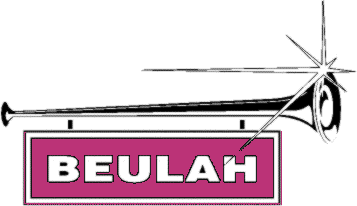Many music lovers miss the sound from vinyl pressings.
Many others have yet to discover how pleasant the sound can be.
Most of our albums are mastered from vinyl LP pressings and earlier
recordings (before 1953) from 78 rpm discs. It is our ability to
recreate, in the digital age, the sound from the disc era that many of
our customers find most enjoyable.
Unlike modern digital recordings tracks in our
albums do contain some distortion, and the occasional surface noises,
but for many listeners these "defects" are soon forgotten.
|
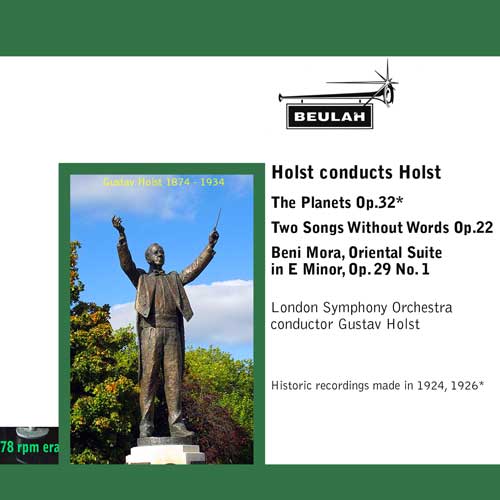
|

|
|
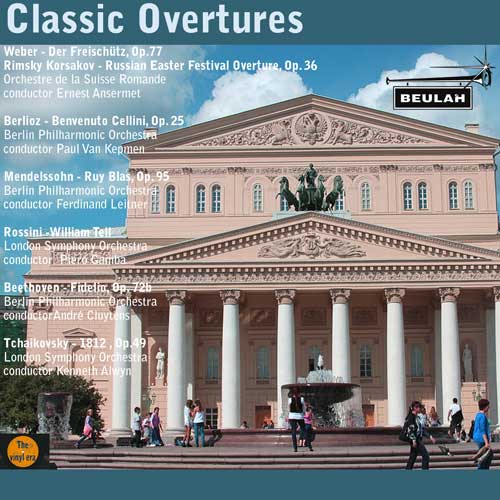
|
Coming soon
|
|

|
Coming soon
|
|
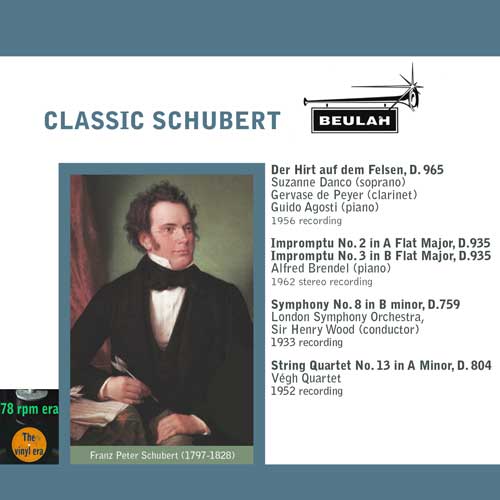
|
Coming soon
|
|
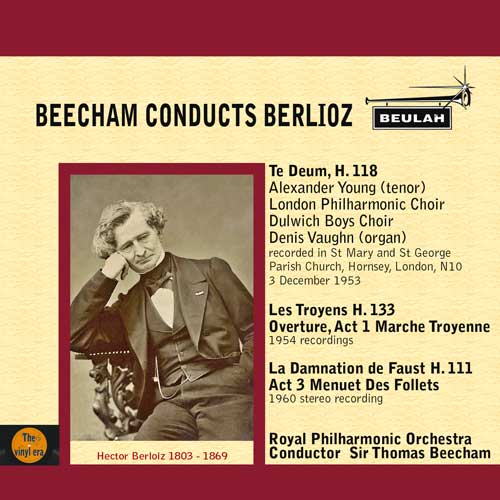
|



|
|
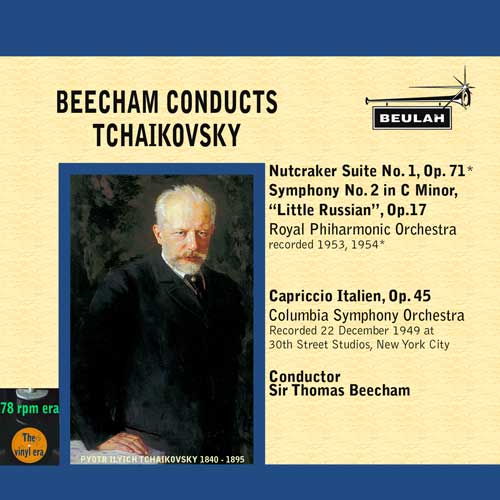
|


|
|
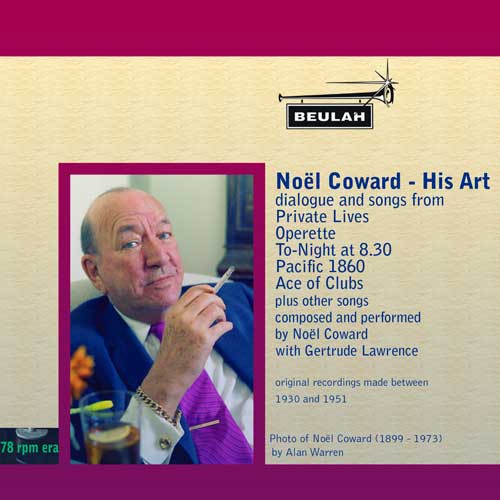
|



|
What the Critics Say
It’s good that these recordings are being made
available again to a potentially new audience.
More usually known just as Solomon, Solomon Cutner
CBE (1902-1988) was one of the mainstays of the HMV catalogue, having
made his first recording in 1929. Following a stroke his career ended
in 1956, so these are some of the last recordings that he set down, all
with the Philharmonia and with conductors with whom he had a special
affinity, especially Herbert Menges.
The Beethoven, which comes from that ideal partnership
with Menges, remains one of the best interpretations of this work and
confirms my feeling that this is my favourite concerto of the five.
It’s full of Mozartian life but it also presages the deeper works which
were about to come forth, especially in this sensitive and ethereal
account of the slow movement. Though recorded in stereo, there’s little
directional effect in this transfer but the recording is otherwise
beautifully open and tonally very good indeed for its age.
Also with Menges, the Grieg and Schumann were
released together on ASD272. That’s a classic pairing, but so similar
are these two works that it’s probably better to separate them, as
Beulah have done.
We return to recordings made in 1949 for the
Tchaikovsky and Scriabin, when Solomon was at the height of his career.
If anything, this virtuoso, but not merely virtuoso, account of the
former is the best of these performances and the recording is excellent
for its age. The sound could not be mistaken for an LP recording –
there’s a small degree of blasting at climaxes and the balance between
the soloist and orchestra is not always ideal – but very little
tolerance is required.
Read Brian Wilson's full review at Music
Web International
"As with his recordings of Haydn’s ‘London’
Symphonies, Sir Thomas Beecham’s performances
of the last symphonies of Mozart could hardly pass
muster as authentic but they also share the ‘naughty
but nice’ quality of his Haydn and I was very pleased
to make their acquaintance again in new transfers
from Beulah: Nos. 35 (‘Haffner’), 36 (‘Linz’) and 38
(‘Prague’) on 1PS15 [65:34] and Nos. 39, 40 and 41 (‘Jupiter’) on 2PS15
[78:52]. Of the three classic recordings from this period, Karl Böhm,
whose Mozart I also like, is a little too stately for many and it’s
swings and roundabouts between Beecham and Bruno Walter. With these
recordings otherwise available together only in Sir Thomas Beecham: The
Classical Tradition, the Beulah releases are very welcome."
Brian Wilson at MUSICWEB
INTERNATIONAL where you can read the full review
"
More Mozart from Beulah with the title Mozart Strings: Serenade No.13
(Eine kleine Nachtmusik), Divertimento in F, K318, and a selection of
dances are performed by The Vienna Soloists and Wilfried Boettcher
(rec.1961), coupled with the Sinfonia Concertante for violin and viola,
K364, recorded for Supraphon by Josef Suk and Milan Skampa with the
Czech Philharmonic and Kurt Redel in 1962. These recordings are
ADD/stereo and none of them are otherwise generally available.
" I don’t recall hearing these Boettcher recordings,
though he directed some of Alfred Brendel’s early Mozart and Beethoven
concertos for Vox. These are well focused and sensitive performances,
though not quite the equal of the Vienna Octet Mozart recordings from
the same period, several of which are also available from Beulah. Best
of all for the dance music of Mozart and his contemporaries are the
recordings which Willy Boskovsky made with his own Ensemble. The
recording sounds very good for its age in this Beulah transfer.
"The classic Sinfonia Concertante performances from
this period came from David Oistrakh, with Rudolf Barshai (Artia, long
defunct) and with son Igor (Decca, now on Legends E4702582, 2CDs). The
recording is less full than from Boettcher and his team but well
transferred considering the problems I recall from Supraphon LPs in the
1960s. The performance is another matter. When first released in the UK
in 1966 it was dismissed as routine and though I think that rather
harsh, this is not Josef Suk at his best and there are other more
recommendable performances "
Brian Wilson at MUSICWEB
INTERNATIONAL where you can read the full review
"A trio of performances on a generously filled
album labelled Historic Bruckner is heralded by the Overture in g
minor, WAB98, performed by Sir Henry Wood with the Queen’s Hall
Orchestra (1937)
"The Overture, of which this seems to be the only
extant version, has come up sounding extremely well for its age. The Te
Deum, on the other hand, sounds rather crumbly and though Eugen Jochum
was a very fine Brucknerian I didn’t derive a great deal of pleasure
from it, even with the volume turned down for comfort.
"Eduard van Beinum’s Bruckner is always worth
hearing and this is the only generally available single-album offering
of the Seventh Symphony: the Eloquence offering of Nos.5, 7-9, takes
four CDs. The recording, described as ‘extremely faithful’ in 1953, has
come up well enough in this transfer for the listener to appreciate why
this ‘authoritative’ performance ‘full of grandeur’ has stood the test
of time. Even with over 200 recordings of this symphony, the Beulah is
well worth the modest cost of the download for the one work alone."
Brian Wilson at MUSICWEB
INTERNATIONAL where you can read the full review
"I’m especially pleased to see that one
of their first new releases offers the classic recording of Grieg’s
Piano
Concerto in a minor, Op.16, made by Clifford Curzon with the LSO and
Øivin Fjeldstad in stereo in 1959 – still my version of choice despite
huge
competition from the likes of Leif-Ove Andsnes’ two recordings. The
original coupling was a selection from the two Peer Gynt Suites which I
missed at the time, having opted for economy by buying the concerto
alone on a 10” LP, but which I could wish had been reissued with the
concerto. That said, Peer Gynt Suite No.1, Op.46, Two Elegiac Melodies,
Op.34 and Symphonic Dances, Op.64, from the Hallé and Sir John
Barbirolli (rec. 1958) make a very good substitute, extending the
playing time to a very generous 81:09.
"My only reservation is that the transfers are not
quite up to the usual Beulah standards, with a degree of tonal
insecurity, attributable, I believe to the quality of the original LPs
rather than the transfer."
Brian Wilson at MUSICWEB
INTERNATIONAL where you can read the full review
" This transfer of Launy Grøndahl’s live broadcast
recording of The Four Temperaments was my Reissue of the Month when it was
released on its own and it’s even more recommendable as part of the new
album.
at this sounds as if it was ‘sung, played and …
directed with love’.
"Grøndahl’s 1951 recording of Symphony No.4
(Inextinguishable), again with the Danish RSO, is available
inexpensively from Naxos Classical Archives (9.80540 – Bargain of the
Month – DL News 2014/13). For the even more recommendable classic
Jensen account of the Espansiva, it’s a question of whether you prefer
it with No.2, as here, or with No.4 on a Danacord recording, which is
also download only, for much the same price as the Beulah.
"This new release may not boast the best sound –
both recordings require some tolerance – but it offers an essential
adjunct to modern versions of these symphonies."
Brian Wilson's Recording of the Month at MUSICWEB
INTERNATIONAL where you can read the full review
" These are classic accounts; if not quite the
classic accounts of this music they are all well worth preserving.
"Morton Gould’s first recording of Rhapsody in Blue,
released in the UK in 1957, was slightly abridged but this remake is
complete and intact. Having been nurtured on Leonard Bernstein’s CBS
recording in various incarnations (now on Sony, with American and Piano
Concerto) I enjoyed hearing this account of much the same vintage.
"This RCA recording of American in Paris predates
Bernstein’s better-known recording on Sony but shares most of the
virtues of that later version: it seems to have been released in the
USA on RCA Camden in 1958 rather than the stated 1959.
"If anything, I enjoyed Frederick Fennell’s
performances of the song transcriptions more than anything else on this
album.
"The transfers have been done with Beulah’s usual
care but the original LP of Rhapsody in Blue (an RCA rather than a
Decca pressing, I understand) seems to have been a slight ‘swinger’,
so, unavoidably, the pitch is not totally secure. As this seems to be
the only way to obtain the recording in the UK, I’m happy to overlook
what is after all a minor irritation. The very fine Mercury recording
of Fennell more than atones.'
Brian Wilson at MUSICWEB
INTERNATIONAL where you can read the full review
